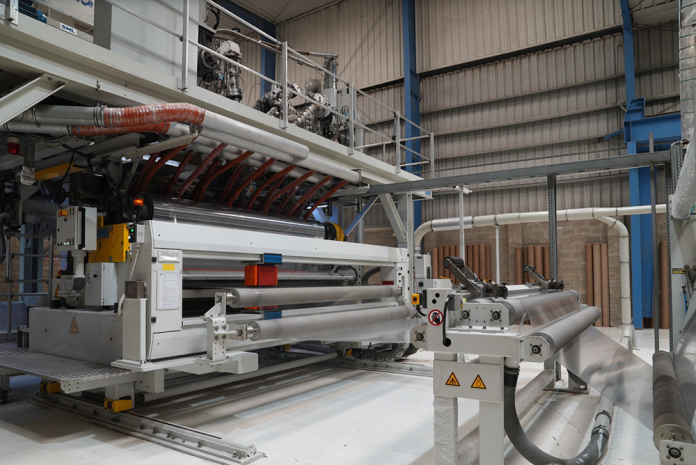Introduction
The flexible packaging industry currently faces several challenges, such as new regulations, changing customer preferences, and financial pressures. To stay competitive, companies must innovate and continuously improve their operations. Additionally, there is a significant push for sustainability, requiring businesses to develop packaging solutions that reduce waste, use recyclable or biodegradable materials, and meet eco-friendly standards. Balancing innovation with environmental responsibility is crucial for success in this evolving market.
Macpac Films Ltd exemplifies this approach by focusing on sustainability and innovation. By reducing waste, utilizing environmentally friendly materials, and achieving a reduced carbon footprint, they address these challenges while meeting customer demands. Adopting new technologies and refining their products keeps them at the forefront of an ever-evolving market.
Embracing Sustainable Practices
Sustainability is crucial in the flexible packaging industry due to rising consumer expectations and environmental needs. Companies are under pressure to adopt eco-friendly practices to reduce pollution, decrease landfill waste, and combat climate change. Innovative materials and technologies, such as biodegradable plastics and recyclable materials, are becoming standard. Macpac Films Ltd is a pioneer in this movement, leading the way with sustainable packaging solutions and demonstrating strong ecological stewardship.
Numerous companies are successfully integrating sustainable practices into their operations. Macpac Films Ltd exemplifies this by leading the way in sustainability and technological advancements. Their efforts include significant investments in R&D for eco-friendly materials, forming strategic partnerships with environmental organizations, and embedding sustainability into their corporate ethos.
These initiatives have enhanced their brand reputation, increased customer loyalty, and ensured compliance with strict regulatory standards. Macpac’s commitment to sustainability demonstrates how companies can effectively balance business success with environmental responsibility.

Adapting to Regulatory Changes
The regulatory landscape governing packaging materials, waste management, and carbon emissions continues to evolve globally. New regulations aimed at reducing environmental impacts necessitate proactive compliance strategies and continuous adaptation to legislative amendments.
In response to evolving regulations, Macpac Films Ltd is dedicated to compliance through stringent measures. They invest in advanced technologies to reduce waste and carbon emissions, ensuring their products meet international standards. Continuous staff training keeps them updated on regulatory changes, showcasing their commitment to high environmental responsibility standards.
Regulatory shifts influence operational efficiencies, cost structures, and market positioning. Macpac Films Ltd proactively realigns its strategies to meet regulatory requirements, capitalizing on market advantages and fostering sustainable growth.
Transitioning to a Circular Economy
The transition to a circular economy model is pivotal for the flexible packaging sector. Emphasizing product reuse, recycling, and regeneration, this approach mitigates waste generation and optimizes resource consumption, aligning with sustainable development goals.
Macpac Films Ltd has successfully embraced circular economy principles by prioritizing recyclable design innovations, implementing take-back programs, and integrating recycled content into their product offerings. These initiatives minimize waste, lower raw material costs, and enhance brand value through sustainable practices.

Addressing Economic Pressures
The flexible packaging industry contends with economic pressures such as supply chain disruptions, inflationary trends, and fluctuating raw material costs. These challenges underscore the need for agile business strategies focused on cost efficiency, risk mitigation, and operational resilience.
Effective risk management strategies are essential for mitigating economic uncertainties. Macpac Films Ltd undertakes scenario planning, diversifies supply sources, and maintains financial flexibility to ensure business continuity and resilience in volatile market conditions.
Conclusion
In today’s economy, the flexible packaging industry needs to focus on sustainability and innovation to succeed. By continuously learning and adapting to changing regulations and customer preferences, they can lead the market. Employing sustainable methods and capitalizing on opportunities, Macpac Films Ltd demonstrates how businesses can thrive in a dynamic and competitive environment. Ultimately, the flexible packaging sector must prioritize sustainable practices, regulatory compliance, and economic resilience to navigate the challenges of the modern market. As these companies evolve, their commitment to innovation and sustainability will determine their long-term success and influence on the global stage.


